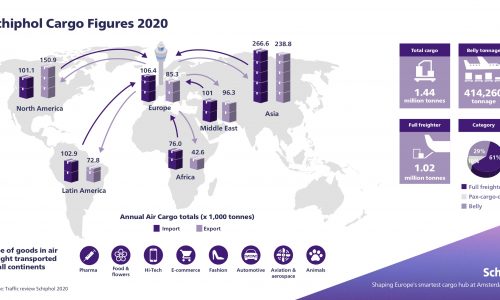London-Heathrow handled 1,788 cargo-only flights in April, helping to bring in critical supplies of PPE.
The busiest day at the premier UK airfreight hub was April 30, with 95 dedicated cargo movements – 14 times the usual daily average pre-COVID. Even so, cargo volumes at Heathrow were down over 60%.
Passenger numbers were down 97% in April with the airport supporting essential travel for just 200,000 people in the entire month – the same number it would typically serve in just one day.
Many of those passengers were on board the 218 charted repatriation flights that landed at Heathrow. Demand is expected to remain weak until governments lift lockdowns.
A spokesperson for Heathrow said that the airport supports the UK Government’s aim of avoiding a second wave of Covid-19 infection, “even though the 14 day quarantine plan will effectively close borders temporarily”.
Adding: “It is likely that few passenger flights will operate and even less people will travel until the quarantine is lifted.”
Without long haul passenger flights, there will be “very limited trade” as 40% of UK exports and inward supply chain travels in the cargo holds of passenger planes from Heathrow. “Until people can fly freely again, industries in all corners of the country will remain stagnant”.
Heathrow CEO John Holland-Kaye said: “Aviation is the lifeblood of this country’s economy, and until we get Britain flying again, UK business will be stuck in third gear.
“The Government needs to urgently lay out a roadmap for how they will reopen borders once the disease has been beaten, and to take an immediate lead in agreeing a Common International Standard for health in aviation that will allow passengers who don’t have the infection to travel freely.”


